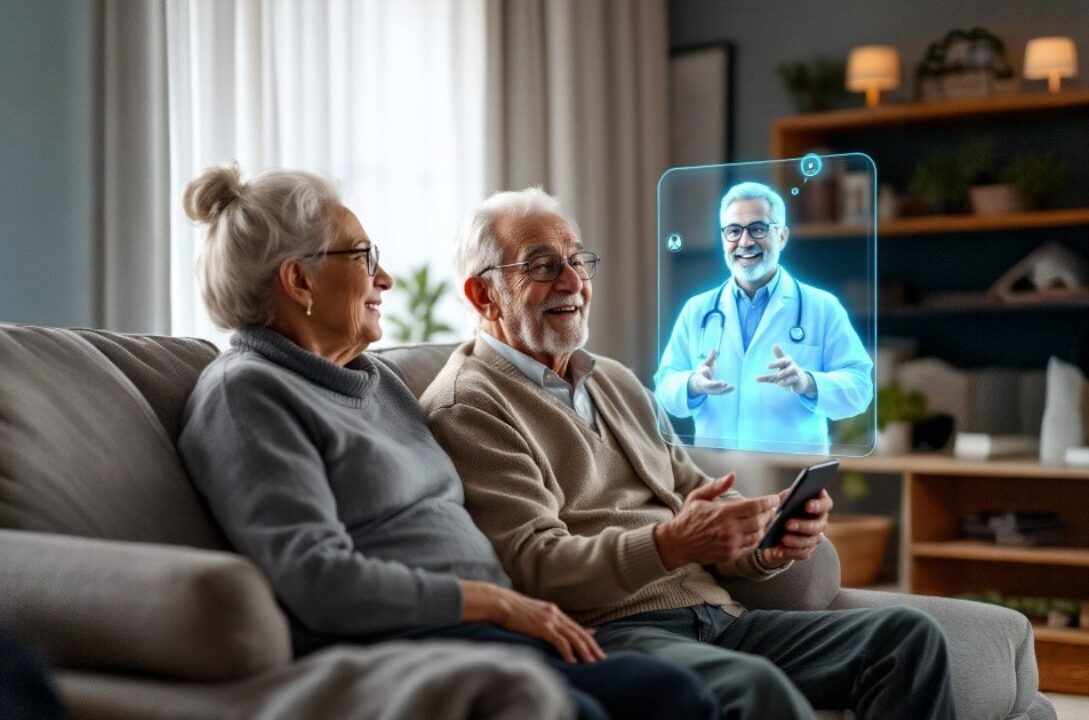The healthcare industry is on the brink of a revolution. With rapid advancements in technology, science, and data analytics, the future of healthcare promises to be more efficient, personalized, and accessible than ever before. In this article, we explore 10 surprising innovations that are set to transform the way we approach health and wellness. From AI-driven diagnostics to gene editing, these breakthroughs will redefine healthcare as we know it.
1. Artificial Intelligence in Diagnostics
Artificial Intelligence (AI) is no longer a futuristic concept—it’s here, and it’s making waves in healthcare. AI-powered diagnostic tools are revolutionizing the way diseases are detected and treated. These tools can analyze vast amounts of medical data, identify patterns, and provide accurate diagnoses in a fraction of the time it takes human doctors.
For instance, AI algorithms are now capable of detecting early signs of diseases like cancer, heart conditions, and even rare genetic disorders. By leveraging machine learning, these systems continuously improve their accuracy, ensuring that patients receive the best possible care. The integration of AI into diagnostics will not only save lives but also reduce healthcare costs by catching diseases early.
2. Telemedicine and Virtual Care
The COVID-19 pandemic accelerated the adoption of telemedicine, and it’s here to stay. Virtual care platforms allow patients to consult with healthcare providers from the comfort of their homes, eliminating the need for unnecessary hospital visits. This innovation is particularly beneficial for individuals in remote or underserved areas.
Telemedicine is not just limited to video consultations. Wearable devices and remote monitoring tools enable doctors to track patients’ vital signs in real-time, ensuring timely interventions. As technology advances, we can expect telemedicine to become even more integrated into our daily lives, making healthcare more accessible and convenient.
3. Personalized Medicine
Gone are the days of one-size-fits-all treatments. Personalized medicine is the future, and it’s all about tailoring healthcare to individual genetic profiles, lifestyles, and preferences. By analyzing a patient’s DNA, doctors can predict how they will respond to specific medications and therapies, minimizing side effects and maximizing effectiveness.
For example, pharmacogenomics—a field that studies how genes affect a person’s response to drugs—is already being used to customize treatments for conditions like cancer and depression. As genomic sequencing becomes more affordable, personalized medicine will become the standard of care, ensuring better outcomes for patients.
4. CRISPR and Gene Editing
CRISPR-Cas9 is a groundbreaking technology that allows scientists to edit genes with unprecedented precision. This innovation has the potential to cure genetic disorders, combat infectious diseases, and even enhance human capabilities. Imagine a world where diseases like sickle cell anemia or cystic fibrosis can be eradicated at the genetic level.
While CRISPR is still in its early stages, the possibilities are endless. Researchers are exploring its applications in cancer treatment, organ transplantation, and agriculture. As ethical concerns are addressed, gene editing could become a cornerstone of modern medicine.
5. 3D Printing in Healthcare
3D printing is transforming healthcare by enabling the creation of customized medical devices, prosthetics, and even human tissues. This technology allows for the production of patient-specific implants, ensuring a perfect fit and faster recovery times.
One of the most exciting applications of 3D printing is in the field of bioprinting, where scientists are working on creating functional human organs. While this is still in the experimental phase, the potential to address organ shortages is immense. In the near future, 3D-printed organs could save countless lives.
6. Nanotechnology in Medicine
Nanotechnology involves manipulating matter at the atomic and molecular scale, and it’s set to revolutionize healthcare. Nanoparticles can be designed to deliver drugs directly to diseased cells, minimizing damage to healthy tissues and reducing side effects.
For instance, researchers are developing nanobots that can navigate the bloodstream to remove plaque from arteries or target cancer cells. This level of precision was unimaginable just a few decades ago, but it’s quickly becoming a reality. Nanotechnology will play a crucial role in the development of targeted therapies and minimally invasive treatments.
7. Blockchain for Health Data Security
With the increasing digitization of health records, data security has become a major concern. Blockchain technology offers a solution by providing a secure and transparent way to store and share medical information. Each transaction is recorded in a decentralized ledger, making it nearly impossible to alter or hack.
Blockchain can also streamline processes like insurance claims and drug supply chain management, reducing fraud and improving efficiency. As healthcare systems adopt this technology, patients can expect greater control over their data and enhanced privacy.
8. Augmented Reality in Surgery
Augmented Reality (AR) is transforming the way surgeons plan and perform procedures. By overlaying digital images onto the physical world, AR provides real-time guidance during surgeries, improving accuracy and reducing risks.
For example, AR headsets can display a patient’s anatomy in 3D, allowing surgeons to visualize complex structures before making incisions. This technology is particularly useful in minimally invasive surgeries, where precision is critical. As AR becomes more advanced, it will enable even more complex procedures to be performed with confidence.
9. Wearable Health Tech
Wearable devices like smartwatches and fitness trackers are already popular, but their potential goes far beyond counting steps. Wearable health tech is evolving to monitor a wide range of health metrics, including blood pressure, glucose levels, and even mental health indicators.
These devices empower individuals to take control of their health by providing real-time feedback and actionable insights. In the future, wearables could detect early signs of illness and alert users to seek medical attention before symptoms worsen. This proactive approach to healthcare will lead to better outcomes and a healthier population.
10. Regenerative Medicine
Regenerative medicine focuses on repairing or replacing damaged tissues and organs, offering hope for conditions that were once considered untreatable. Stem cell therapy, for example, has shown promise in treating spinal cord injuries, heart disease, and diabetes.
Another exciting area of regenerative medicine is tissue engineering, where scientists are developing lab-grown organs and tissues for transplantation. While still in the experimental stage, these advancements could eliminate the need for donor organs and reduce the risk of rejection. The future of regenerative medicine is bright, with the potential to heal the body in ways we never thought possible.
Conclusion
The future of healthcare is filled with exciting possibilities. From AI-driven diagnostics to regenerative medicine, these 10 surprising innovations are set to transform the way we approach health and wellness. As technology continues to evolve, we can expect healthcare to become more personalized, efficient, and accessible. The key to unlocking these advancements lies in continued research, collaboration, and investment. Together, we can build a healthier future for all.
FAQs
1. How will AI impact the role of doctors in the future?
AI will augment the role of doctors by providing them with powerful tools for diagnosis and treatment planning. While AI can analyze data and identify patterns, human doctors will still be needed to interpret results, make decisions, and provide compassionate care.
2. Is telemedicine as effective as in-person consultations?
Yes, telemedicine can be just as effective as in-person consultations for many conditions. It offers convenience and accessibility, especially for routine check-ups and follow-ups. However, certain situations may still require physical examinations.
3. What are the ethical concerns surrounding gene editing?
Gene editing raises ethical questions about the potential for “designer babies,” unintended consequences, and unequal access to the technology. It’s crucial to establish guidelines and regulations to ensure responsible use.
4. How does blockchain improve health data security?
Blockchain creates a decentralized and tamper-proof record of health data, making it more secure and transparent. Patients can control who accesses their information, reducing the risk of data breaches.
5. Can wearable health tech replace regular doctor visits?
While wearable health tech provides valuable insights, it cannot replace regular doctor visits entirely. These devices are best used as a complement to professional medical care, helping individuals monitor their health and detect potential issues early.















